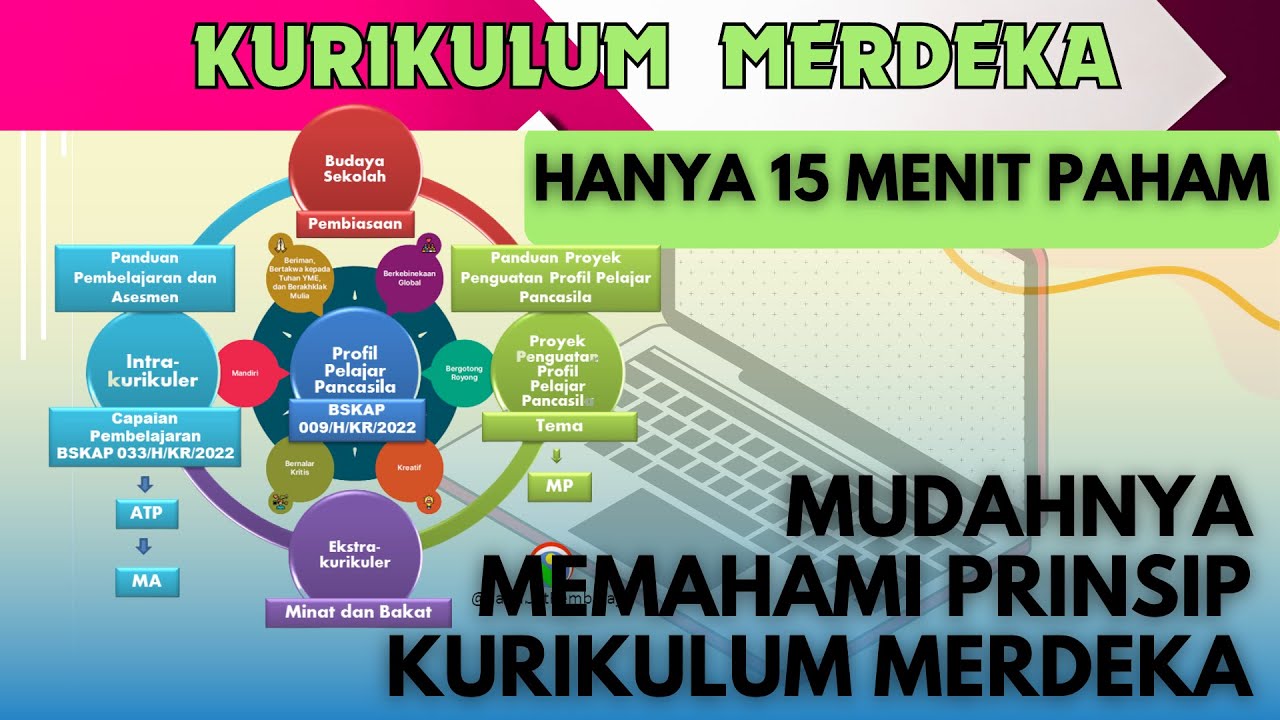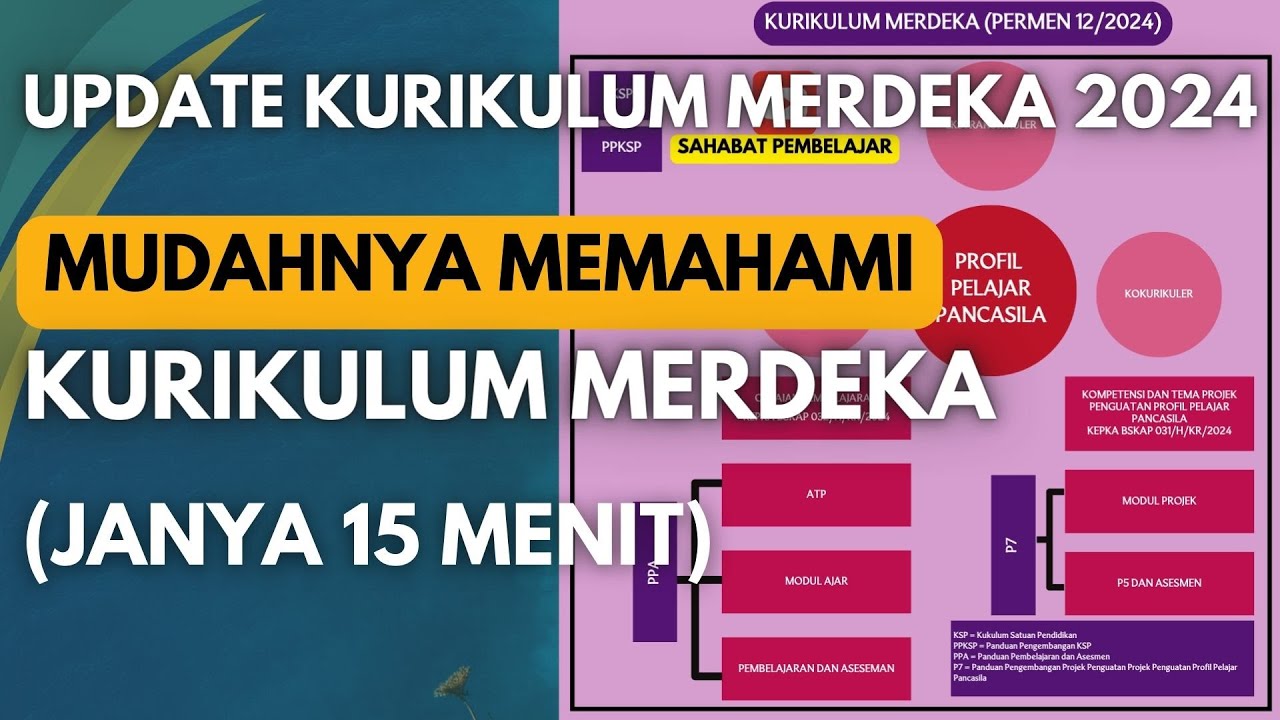Memfasilitasi Peserta Didik Selama Proses Projek Penguatan Profil Pelajar Pancasila
Summary
TLDRThis video offers guidance for educators on how to effectively facilitate student projects within the framework of the Pancasila Student Profile. It emphasizes the importance of involving students in selecting project themes and fostering critical thinking through guiding questions. Educators are encouraged to support students as facilitators and coaches, helping them overcome challenges and develop ideas independently. The video also highlights the importance of regular progress checks, balanced feedback, and reflection to enhance the learning experience and cultivate positive work habits in students.
Takeaways
- 🎯 The Project Profil Pelajar Pancasila aims to develop students' learning skills through project-based activities.
- 📝 Educators should involve students in choosing project themes, even if the main theme is predetermined.
- 💡 Facilitating involves guiding students with thought-provoking questions to encourage critical thinking.
- 👥 Contextualizing the project theme should be a collaborative process between educators and students.
- 🧠 Educators should coach and provide feedback throughout the project, helping students refine their ideas and overcome obstacles.
- 🔍 Educators should avoid directly providing answers, instead helping students find solutions independently.
- 📚 Facilitators can support students by helping them find learning resources, offering feedback, and engaging in discussions.
- 🗓 Regular check-ins should be scheduled to monitor project progress and ensure it aligns with the initial plan.
- 🛠 Feedback should be balanced, offering both appreciation and constructive criticism to help students grow.
- 🌱 Effective facilitation leads to an optimal learning process, empowering students to control their learning resources.
Q & A
What is the main goal of the Project Profil Pelajar Pancasila?
-The main goal is to build learning skills in students by engaging them in projects that align with the dimensions of the Profil Pelajar Pancasila.
How can educators involve students in the early stages of a project?
-Educators can involve students by allowing them to participate in selecting the project theme or topic, even if the educator has already chosen a broad theme.
What role does contextualizing the project theme play in student learning?
-Contextualizing the project theme involves adapting and refining the project details with students, making the learning experience more relevant and meaningful.
What are 'pemantik questions,' and how do they support student learning?
-'Pemantik questions' are thought-provoking questions that encourage students to think critically, helping them explore and understand the project theme more deeply.
What should educators do if students struggle to generate ideas during a project?
-If students struggle, educators should act as facilitators and coaches, guiding them to find answers independently rather than directly providing solutions.
How can educators support students throughout the project process?
-Educators can support students by being available for discussions, providing feedback, helping them find resources, and regularly checking in on their progress.
What is the purpose of scheduling check-in sessions during a project?
-Check-in sessions allow educators to monitor the project's progress, ensure it stays on track, and address any issues that may arise.
How can feedback from peers and experts enhance the project outcome?
-Feedback from peers and experts provides diverse perspectives and can help students refine their work, leading to a more polished final product.
What is the significance of balancing appreciation and suggestions in feedback?
-Balancing appreciation and suggestions helps students develop a positive learning attitude while also providing constructive guidance for improvement.
What does it mean for an educator to be a facilitator in the project process?
-Being a facilitator means trusting that students can manage their resources and guiding them to learn and progress through the project independently.
Outlines

This section is available to paid users only. Please upgrade to access this part.
Upgrade NowMindmap

This section is available to paid users only. Please upgrade to access this part.
Upgrade NowKeywords

This section is available to paid users only. Please upgrade to access this part.
Upgrade NowHighlights

This section is available to paid users only. Please upgrade to access this part.
Upgrade NowTranscripts

This section is available to paid users only. Please upgrade to access this part.
Upgrade NowBrowse More Related Video

HANYA 15 MENIT ANDA AKAN PAHAM PRINSIP KURIKULUM MERDEKA || SERI KURIKULUM MERDEKA #11

P5 - Apa itu Projek Penguatan Profil Pelajar Pancasila

MUDAHNYA MEMAHAMI KURIKULUM MERDEKA. CUKUP 15 MENIT. UPDATE KURIKULUM MERDEKA 2024

Contoh Pengembangan Tema dalam Projek Penguatan Profil Pelajar Pancasila // Sekolah Penggerak

PANDUAN MENYUSUN CP, ATP DAN MODUL AJAR KURIKULUM MERDEKA

P5 - Pemilihan Elemen dan Sub-elemen Profil Pelajar Pancasila Serta Penentuan Kriteria Pencapaian
5.0 / 5 (0 votes)